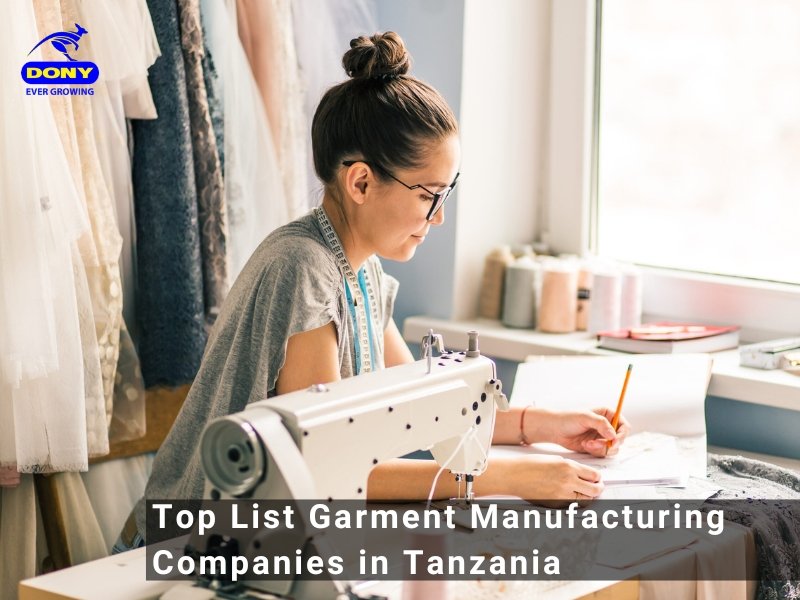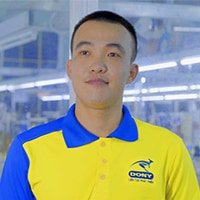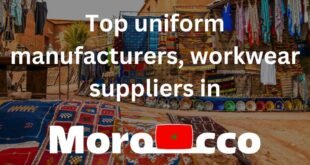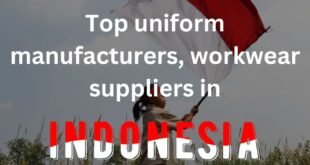Choosing the right garment manufacturing companies in Tanzania is an important step for any company that plans to manufacture in the country. Having a good understanding of the companies that operate in the industry can help you find the ones that will fit your budget and meet your needs.
1 Arusha A to Z Textile Mills
Founded in the 1960s, A to Z Textiles Ltd is a family-owned Tanzanian enterprise that manufactures a variety of high-quality products. It manufactures Long-Lasting Insecticidal Bed Nets (LLINs) as well as other products such as bottled water. It operates from two locations: Arusha and Unga Limited Industrial Area. The company also has operations in Mozambique.
A to Z’s largest non-private buyers include the government of Tanzania, UNICEF, and various other international organizations. It also sells its product to end users. The company’s production capacity is estimated at 30 million LLINs per year.
A to Z’s business plan includes a new textile mill that will produce treated bed nets. The plant will be a joint venture with Japanese chemical company Sumitomo. The company plans to export about 70 billion dollars worth of materials each year.
A to Z is considered to be the largest producer of bed nets in Africa. It is a 50-50 joint venture with Sumitomo. A to Z’s operations are certified to meet the World Health Organization’s (WHO) recommended standards for nets.
In 2002, the Roll Back Malaria Partnership approached Sumitomo. In 2003, the partnership launched a technology transfer process for A to Z to produce Olyset(r) bed nets. The technology transfer was completed in November 2003.
A to Z Textiles was already a leading manufacturer of ITN bed nets. In 2003, it completed a trial run of 300,000 LLINS. Its production was expected to rise to about 30 million LLINs in 2010.
The company has a workforce of over 8,000 people. The majority of these workers are Tanzanian. The company is also involved in producing plastics, bottled water, and other products. The factory is in Arusha, but it also has a facility in Unga Limited Industrial Area.
2 Echo Sourcing
Texaco, a leading textile and garment manufacturing company, manufactures a wide range of products, including baby shawls, baby blankets, protective clothing, workwear, household textiles, and promotional textiles. In addition to Tanzania, Texaco operates in Bangladesh and Hong Kong.
The company is a 50-50 joint venture with Sumitomo Chemical, a Japanese multinational, and has three factories in Bangladesh and Arusha, Tanzania. It is best known for manufacturing treated mosquito nets. It also manufactures acrylic hand knitting yarn, workwear, and baby shawls.
The company has a design team, and works with a number of major European fashion retailers. It launched a sustainable brand, Ninety Percent. Its head office is in London, and its sourcing office is in Dhaka.
Echo Sourcing, a British-Bangladeshi entrepreneur, is exploring Tanzania. He hopes to invest in the country’s apparel industry, and plans to set up a factory in the country. He is currently exploring the potential for a $27-30 million investment. He intends to give 10 percent of the company’s net profit to workers who make the garments.
The Export Processing Zones Authority has identified potential investment opportunities for textile manufacturers. The Authority has started operations in 2007. Its first investment zone, Benjamin William Mkapa Special Economic Zone, is near Dar es Salaam. The authority is working on developing mega-zones and industrial-cum commercial cities.
The Tanga Region has proposed investments in large-scale cotton plantations, small-scale cotton ginneries, and export processing zones. The region’s minister for industry visited a textile mill in Urafiki in January. He said the mill was once a state-owned entity, but had lost its machinery and was in need of mechanical experts. He believes the company could expand production to 5,000 workers by 2020.
3 MeTL Group
Founded in 1970 by Gulamabbas Dewji, Mohammed Enterprises Tanzania Ltd (MeTL Group) is one of the largest textile manufacturing companies in Sub-Saharan Africa. The company operates in a variety of industries and has more than 30 branches in various regions in Tanzania. Its major investments are in the agriculture, textile, and transportation sectors.
MeTL Group’s main manufacturing unit is 21st Century Textiles, which produces high-quality African fabrics and yarn dyed fabric. The factory is located in Morogoro, 200 kilometers west of Dar es Salaam. It is one of the largest employers in the Tanzania’s textile sector.
The company also specializes in textile design and sourcing. It has a head office in London, UK. The company lists major European fashion retailers as clients.
MeTL Group has been actively targeting the SADC markets. It has invested in transport and logistic services to Malawi, DRC, and Zambia. It is planning to expand into Mozambique. MeTL has also developed a carbon-credit program around its bio-energy business.
In addition, MeTL Group has been actively investing in healthcare, education, and transport. In the last five years, it has spent over $3 million on these initiatives.
The company’s biggest investment in Tanzania is the Tooku factory, which plans to hire more than 2,600 workers in the next year. The plant is undergoing intensive modernization and expects to employ more than 5,000 by 2020.
MeTL is a member of the East African Community and the Common Market for Eastern and Southern Africa. It has a presence in 11 countries in both regions. The group is committed to ending poverty in Tanzania. It is also active in the agricultural and food sectors, as well as in beverages, petroleum, and real estate.
4 Ridham Texport
Among the best garment manufacturing companies in Tanzania is Ridham Texport Private Limited, which was established in January 1997. The company is involved in spinning, weaving and finishing of textiles. Besides, the company has a plant for fine fabric production. Its share capital is Rs. 2,500,000, which is paid up. Currently, the company is looking for investment opportunities in East and Southern Africa. It plans to invest about $5-6 million initially. It also plans to start a Global Organic Textile Standard certified organic cotton business.
The textile industry in Tanzania has gone through various stages after independence. In the early 1980s, there were 35 textile mills in the country. By 2000, there were only 17 factories operating. During that period, the government held the majority of the textile market. But since then, private enterprises have become the major players in the textile market.
The government has invested heavily in the textile industry to meet demand. But advanced macroeconomic policies and import liberalisation have not helped the country establish a stable and sustainable textile manufacturing industry. The country has also suffered from the smuggling of clothes, which have been seized in Tanga and other parts of the region. This has had a devastating effect on the local manufacturers. The smugglers do not pay any tax and they sell the merchandise at a lower price.
The Tanzania Development Unit (TDU) has been actively promoting the textile industry in the country. It has drawn the attention of some of the largest manufacturing groups such as Levi’s, Primark and Phillips Van Heusen to invest in the country. It has also encouraged textile companies to source from Tanzania.
The country has the duty-free access to the EU and the United States. However, it lacks a bold and visionary global strategy.
5 Child labor in the garment industry
Despite the fact that child labour is prohibited in most countries, many children are still engaged in it. These children are paid less than the minimum wage, and are working in hazardous conditions.
There are many factors that contribute to the problem. One of the most important is poverty. Some adults earn too little to meet their basic needs, which leads to the situation where children are lured into jobs by promises of high wages. Other factors include weak government capacities, corruption, and lack of urgency.
While the fashion industry is not the only place where child labour exists, it is a major concern. Some countries are notorious for this practice. For example, Bangladesh and India are among the countries that have been accused of using child labour in the textile industry.
Luckily, there are several organisations that are dedicated to ending the problem. These include Common Objective, an international business network for the fashion industry. The organization aims to end child labour in the industry and supports existing campaigns.
In addition to highlighting the problems associated with child labour, the organization also supports innovative approaches to eliminate it. These include the CLEAR Cotton project, which works with governments and public service providers to stop the use of child labour in the textile value chain. The project combines an integrated area-based and value-chain approach.
Another way consumers can help reduce child labour is to avoid buying from companies that are known to employ it. This will encourage companies to change their practices.
In order to effectively eliminate child labour in the garment industry, it is crucial that all brands and retailers adopt an ethical code of conduct. This includes ensuring that there are no subcontractors in the supply chain who engage in unethical practices.
 Henry Pham (Pham Quang Anh), CEO of DONY Garment
Henry Pham (Pham Quang Anh), CEO of DONY Garment
This year, we have found that many international buyers are seeking new suppliers based in nations outside of China and Thailand to purchase many goods and products, including uniforms, workwear, reusable cloth face mask, and protective clothing.
At DONY Garment, we are proud to welcome international customers, especially those based in the US, Canada, the Middle East, and the EU market to discover the professional production line at our factory in Vietnam.
We guarantee our products are of the highest quality, at an affordable cost, and easy to transport across the world.
 Dony Garment Vietnamese Garment Factory Supplier – Apparel Clothing & Textile Manufactured. Private label clothing Produce women, men, children baby wear – Casual Clothing, Uniform, Workwear
Dony Garment Vietnamese Garment Factory Supplier – Apparel Clothing & Textile Manufactured. Private label clothing Produce women, men, children baby wear – Casual Clothing, Uniform, Workwear







 Henry Pham (Pham Quang Anh), CEO of DONY Garment
Henry Pham (Pham Quang Anh), CEO of DONY Garment



